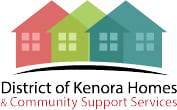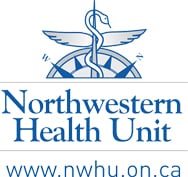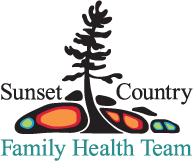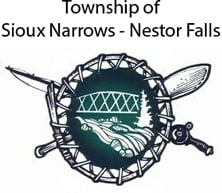Governance
- Definitions
- February 16, 2017 Resolution
- Team Members
- Framework
- Shared Objective
- Seven Sacred Teachings
- Purpose of this Framework
- Commitments
- Autonomy/Non-Derogation
- ANHP Council
- ANHP-OHT
- ANHP-OHT Goals
- Community Role and Engagement
- Traditional Healers Advisory Council
- Primary Care and Specialist Care Role and Engagement
- Communication and Engagement
- ANHP-OHT Projects
- Information Sharing, Transparency, Privacy and Confidentiality
- Voluntary Integration with Others
- Involuntary Integration with Others
- Dispute Resolution
- Term
- Voluntary Withdrawal
- Expulsion
- Withdrawals/Termination of Project Agreement
- Consequences of Termination, Withdrawal or Expulsion
- General Provisions
- Signature Pages
SCHEDULE 2: FEBRUARY 16, 2017 RESOLUTION
SCHEDULE 3: LIST OF CURRENT TEAM MEMBERS
SCHEDULE 10: TERMS OF REFERENCE FOR THE ANHP COUNCIL
SCHEDULE 13: DRAFT TERMS OF REFERENCE FOR THE PATIENTS, FAMILIES, AND ELDERS ADVISORY COUNCIL
SCHEDULE 16: PROCESS FOR IMPLEMENTATION OF A PROJECT
SCHEDULE 17: INFORMATION SHARING, TRANSPARENCY, PRIVACY AND CONFIDENTIALITY
SCHEDULE 18: INFORMATION SHARING, TRANSPARENCY, PRIVACY AND CONFIDENTIALITY
SCHEDULE 20: DISPUTE RESOLUTION
SCHEDULE 23: PROCESS FOR EXPULSION
BACKGROUND:
In the Spring of 2015, the critical shortage of physicians serving the Kenora area was addressed in a deputation to Kenora City Council entitled Kenora Health Care – A Growing Industry Sector: The Importance of Physician Recruitment and Retention, Community Vision and Collaboration (A Physician Perspective). The presentation focused on five key areas:
- The importance of physician recruitment and retention, and the need for a centralized physician recruitment process for the Kenora area;
- The current state of health care in the Kenora area;
- An update on changes to health care affecting the Kenora area;
- A proposal for a community-based Health Care Commission; and
- The role of the City of Kenora in moving these issues forward.
In response, the City spearheaded the creation of the Kenora Area Health Care Working Group in September 2015. At that time, the group included representatives from the City of Kenora, Lake of the Woods Development Commission, Lake of the Woods District Hospital, Waasegiizhig Nanaandawe’iyewigamig, Kenora Chiefs’ Advisory, Northwestern Health Unit, family physicians, and members of the community. The working group identified three key issues: (1) physician recruitment and retention; (2) cross border access to care between Ontario and Manitoba; and (3) the need for a long-term collective vision for health care in the Kenora area.
In less than a year, the working group completed a needs assessment, raised funds from committed stakeholders, and hired a healthcare professional recruiter. In less than two years, the working group made progress on the cross-border issue, identified the replacement of aging hospital infrastructure as an additional key priority in support of both successful patient care and physician recruitment, and secured funding begin a formal planning process.
Political leadership comprised of Grand Council Treaty#3 Ogichidaa, the Mayors of the City of Kenora and the Township of Sioux Narrows/Nestor Falls, Chief Lorraine Cobiness on behalf of the Kenora Area First Nation Chiefs, and the President of the Kenora Métis Council assembled in the roundhouse at Wauzhushk Onigum First Nation to sign a resolution agreeing to work together in partnership to develop an All Nations health care system, including construction of an All Nations hospital and campus, with the express purpose of improving health outcomes for all people of the region it serves through a healthcare service model built on a partnership between First Nations, Métis, and non-First Nations governments and providing an improved healthcare system that reflects the specific needs and costs of the north.
The signatories to this document now wish to work together to grow and evolve the working group to create the All Nations Health Partners, a coalition of leaders in Indigenous and mainstream health services in the Kenora Region, and of other stakeholders, through this collaborative decision-making framework agreement.
A pictorial of the initial All Nations Health Partners model is set out below:
For value received, the Team Members agree as follows:
- Definitions. Capitalized terms used in this Framework have the meanings given to them in Schedule 1.
- February 16, 2017 Resolution. The February 16, 2017 resolution, which gave rise to the ANHP, formed in ceremony and trust, is attached as Schedule 2.
- Team Members. The current Team Members are listed in Schedule 3. Additional organizations may be admitted as new Team Members through a process established by the ANHP Council provided that they become a signatory to this Framework.
- Framework. This Framework sets out the purpose, function, and processes for the ANHP. It is a living document, and will evolve over time. At any time, a Team Member may propose changes to this Framework for discussion at an ANHP Council meeting. Changes will only become effective upon approval by the ANHP Council.
- Shared Objective. The Team Members will work together to facilitate the development and implementation of the Shared Objective, and will be guided by the Truth and Reconciliation Commission’s Health Calls to Action Nos. 18-24.
- Seven Sacred Teachings. The ANHP will work by consensus and will be governed by a culture of ethical conduct embodied in the Seven Sacred Teachings:
VALUE APPLICATION IN CONTEXT Honesty Speak openly and truthfully always. Truth Focus on facts; be prepared to accept information you may not want to hear. Respect Everyone has value, and should be treated with respect. Being on time, listening, and speaking humbly, and respecting personal boundaries are all ways in which respect is demonstrated. Bravery Take risks; move toward your vision despite fears and unknowns. Have the courage to engage in sensitive or difficult conversations. Love Love describes the good life – minobimaadiziwin. It is given and received through life, earth, people, choices and opinions. Humility No one person or community is more important than another; we are all equal. Everyone has a voice, and all contributions have value. We all have gifts as well as limitations. Wisdom We constantly learn by listening, hearing, and applying what we learn – especially from our elders – in a never-ending process. - Purpose of this Framework. The purpose of this Framework is to:
- set out how the Team Members will work together to achieve the Shared Objective;
- establish the ANHP Council, PFEAC, THAC, PSAC, and other organizational structures to enable the work of the Team Members; and
- set out the rights and obligations of the Team Members.
- Commitments. The Team Members confirm their commitment to:
- participate in the collaborative decision-making structures and processes described in this Framework to achieve the Shared Objective;
- embody the Seven Sacred Teachings in their work;
- try to eliminate, minimize, or mitigate any conflict between the Shared Objective and any of their own contractual and service obligations and relationships; and
- adhere to the provisions of this Framework.
- Autonomy/Non-Derogation. While the Team Members have a Shared Objective, each Team Member remains autonomous, and is responsible to its own governing body. The ANHP Council has no authority to make a decision binding on an individual Team Member, except as specifically set out in this Framework or as specifically delegated by a Team Member through a Project Agreement or otherwise.
- ANHP Council. The Team Members establish the ANHP Council as the collaborative decision-making body of the ANHP, and for the implementation of ANHP and ANHP-OHT initiatives in pursuit of the Shared Objective. The ANHP-OHT is part of the work of the ANHP, and the ANHP Council will oversee the work of the ANHP-OHT. The composition, mandate, and processes of the ANHP Council are set out in Schedule 10.
- ANHP-OHT. As part of the Shared Objective, the Team Members, through the ANHP, intend to be designated by the Minister of Health as an Ontario Health Team under the Connecting Care Act, 2019 and, once designated, to operate under the name All Nations Health Partners ‒ Ontario Health Team.
- ANHP-OHT Goals. The ANHP-OHT’s goals include:
- improved health care services for everyone;
- responsiveness to the needs of Indigenous communities;
- seamless continuum of care across all healthcare providers;
- access to health services closer to home;
- health outcomes that exceed Provincial standards;
- supportive environments for healthcare providers; and
- building an All Nations hospital and campus.
- Community Role and Engagement. The ANHP Council will engage the community in system co-design and in all levels of ANHP-OHT decision-making to ensure that the voice of those who seek or receive care or services from the ANHP-OHT, or who support those seeking or receiving care or services, is heard. The Team Members, through the ANHP Council, will establish a Patients, Families, and Elders Advisory Council (“PFEAC”) with terms of reference substantially similar to the draft terms of reference set out in Schedule 13. Representation from the PFEAC will be included in the ANHP Council as provided in its Terms of Reference and in the committees and working groups of the ANHP Council as appropriate. A Patient Declaration of Values for the ANHP will be established by the ANHP Council in consultation with the PFEAC.
- Traditional Healers Advisory Council. The ANHP Council will engage traditional healers in system co-design and in all levels of ANHP-OHT decision-making to ensure that the voice of those who provide care or services through the ANHP-OHT is heard. The ANHP Council will support the establishment of a Traditional Healers Advisory Council (“THAC”). Representation from the THAC will be included in the ANHP Council as provided in its Terms of Reference and in the committees and working groups of the ANHP Council as appropriate.
- Primary Care and Specialist Care Role and Engagement. The ANHP Council will engage primary care and specialist providers in system co-design and in all levels of ANHP-OHT decision-making to ensure that the voice of those who provide care or services through the ANHP-OHT is heard. The ANHP Council will support the establishment of a Primary Care and Specialist Care Advisory Council (“PSAC”). Representation from the PSEAC will be included in the ANHP Council as provided in its Terms of Reference and in the committees and working groups of the ANHP Council as appropriate.
- Communication and Engagement. The ANHP Council will develop and implement a central communication and engagement strategy intended to actively engage all interested stakeholders, and to keep Team Members, residents, and other key stakeholders informed about the ANHP’s progress. The strategy will include a plan describing distribution and alignment of key messages, target audiences, and communication type and frequency. For ANHP-OHT matters, the ANHP Council is collectively responsible for seeking input from and relaying information to all Team Members. Special attention will be paid to have communication protocols in place to connect all primary care providers in the ANHP OHT with other ANHP OHT members and partners.
- ANHP-OHT Projects. To fulfill the Shared Objective, the Team Members will carry out Projects. Each Project will be implemented in accordance with Schedule 17.
- Information Sharing, Transparency, Privacy and Confidentiality. Transparency will be a key enabler for fulfilling the Shared Objective. Each Team Member will communicate decisions or positions taken by its organization that impact the work of the ANHP in a timely and transparent manner. The Team Members will adhere to the provisions for information sharing, transparency, privacy, and confidentiality set out in Schedule 18.
- Voluntary Integration with Others. If a Team Member is contemplating an integration with another entity or entities that will have a significant impact on the Shared Objective, then it will notify the ANHP Council, and the other Team Members in writing at least 90 days before the completion of such integration. The notice will describe: (a) name of the entity or entities; (b) terms of the proposed integration; and (c) assessment of the impact, if any, of the proposed integration on the ANHP and the Shared Objective. Within 21 days of receipt of the notice, the ANHP Council will assess the impact of the proposed integration on the ANHP and deliver a written report with recommendations to the Team Members. If any Team Member objects to the proposed integration, it will deliver a notice advising the ANHP Council of its objection within 21 days of receipt of the report and the matter will be submitted to the dispute resolution provisions set out in Schedule 21.
- Involuntary Integration with Others. The Team Members recognize that the Minister of Health may order an integration between one or more of the Team Members and/or one or more third parties. If this occurs, the ANHP Council will meet and develop a recommendation to the Team Members as to the impact of such integration on this Framework, the ANHP, the ANHP-OHT, and each Project, and whether any amendments are required to this Framework, a Project, or a Project Agreement. The Team Members will try to continue this Framework and each Project unless any Team Member determines it is not feasible to do so where the essential benefits of this Framework or a Project will not be realized by the ANHP. If any Team Member makes this determination and any other Team Member does not agree, the matter will be submitted to the dispute resolution provisions set out in Schedule 21.
- Dispute Resolution. The Team Members will use their best efforts to avoid disputes by clearly articulating expectations, establishing clear lines of communication, respecting each Team Member’s interests, and respecting the Seven Sacred Teachings. However, if a dispute arises, the Team Members will follow procedures set out in Schedule 21, acting in good faith.
- Term. This Framework will start on the Effective Date and will continue indefinitely, unless terminated by the mutual written agreement of all Team Members.
- Voluntary Withdrawal. A Team Member may withdraw from this Framework by providing at least 90 days’ notice to the other Team Members and to the ANHP Council.
- Expulsion. A Team Member may be expelled from the ANHP, and thereby cease to be a party to this Framework. Reasons for expulsion may include if the Team Member is not meeting its commitments under this Framework, a Project, or a Project Agreement, is no longer committed to the Shared Objective, or is disruptive to the consensual decision-making process at the ANHP Council, or any of its committees or working groups. An expulsion will only take place after following the procedures set out in Schedule 24.
- Withdrawals/Termination of Project Agreement. Unless a Project Agreement provides otherwise: (a) the parties to a Project Agreement may terminate the Project Agreement by mutual written agreement, provided that they give at least 90 days’ notice to the ANHP Council; and (b) a party to a Project Agreement may withdraw from the Project Agreement by giving at least 90 days’ notice to the ANHP Council and the other parties to the Project Agreement.
- Consequences of Termination, Withdrawal or Expulsion. A Team Member that withdraws or is expelled from this Framework will cease to be a party to this Framework. Termination of, or withdrawal or expulsion from, this Framework will not automatically constitute termination of, or withdrawal or expulsion from, any Project or Project Agreement. Withdrawal from or termination of one Project or Project Agreement will not automatically constitute withdrawal from or termination of this Framework or any other Project or Project Agreement. A Team Member that terminates, withdraws from, or is expelled from a Project, a Project Agreement, or this Framework will remain accountable for its obligations, and its actions and omissions before the effective date of the withdrawal or expulsion, and will work with the ANHP Council to develop strategies to reasonably fill any resource or service gaps left by the termination, withdrawal, or expulsion.
- General Provisions. General contract provisions that govern this Framework are set out in Schedule 27.
- Signature Pages. The signature pages for the Team Members are attached as Schedule 28.
SCHEDULE 1: DEFINITIONS
“ANHP” means the All Nations Health Partners, which is formed by the Team Members, and created to fulfill the Shared Objective and to act as the ANHP-OHT.
“ANHP Council” means the council described in Section 10 and Schedule 10.
“ANHP-OHT” means the All Nations Health Partners – Ontario Health Team.
“Business Day” means any working day, Monday to Friday, excluding statutory holidays observed in Ontario.
“Confidential Information” means information of a Team Member that by its nature is confidential and proprietary information but does not include information that: (1) was known to or received by the receiving Team Member before its receipt from the disclosing Team Member (unless acquired on a confidential basis); (2) was public knowledge at the time received by the receiving Team Member or later became public knowledge through no fault of the receiving Team Member; or (3) was independently developed by a Team Member without reference to the Confidential Information previously disclosed by a Team Member.
“Effective Date” means ●, 2021.
“Framework” means this Collaborative Decision-Making Framework, including its Schedules, as amended from time to time.
“Participants” means those entities that are parties to a Project Agreement but that are not Team Members.
“PFEAC” means the Patients, Families, and Elders Advisory Council, as described in Section 13.
“Project” means a collaboration on specific strategies, initiatives, programs, and/or services, as described in this Framework.
“Project Agreement” means any agreement executed by the participating Team Members and, where applicable, Participants, that sets out the details about a specific Project.
“PSAC” means the Primary Care and Specialist Care Advisory Council, as described in Section 15.
“Seven Sacred Teachings” means the teachings described in Section 6.
“Shared Objective” means the development and implementation of a collective vision for health care in the Kenora area, which includes the establishment of a new and innovative fully integrated health service delivery model, through and outside of the ANHP-OHT, that encompasses holistic care for everyone and that will better meet the needs of all people living in the Kenora area, focusing on three main initiatives: (a) recruitment and retention of physicians and other health care professionals; (b) cross-border access to services in Manitoba; and (c) construction of a new All Nations hospital and health care campus supported by a comprehensive, innovative healthcare system.
“Team Members” means the organizations that have signed this Framework.
“THAC” means the Traditional Healers Advisory Council, as described in Section 14.
SCHEDULE 2: FEBRUARY 16, 2017 RESOLUTION

SCHEDULE 3: LIST OF CURRENT TEAM MEMBERS
- Canadian Mental Health Association – Kenora Branch
- City of Kenora
- District of Kenora Homes (Pinecrest)
- District of Kenora Unincorporated Areas Ratepayers Association
- FIREFLY – Physical, Emotional, Developmental and Community Services
- Grand Council Treaty #3
- Kenora Association for Community Living
- Kenora Chiefs Advisory
- Kenora District Services Board
- Lake of the Woods District Hospital
- Kenora Métis Council
- Northwestern Health Unit
- Sunset Country Family Health Team
- Township of Sioux Narrows / Nestor Falls
- Waasegiizhig Nanaandawe’iyewigamig
SCHEDULE 10: TERMS OF REFERENCE FOR THE ANHP COUNCIL
| ANHP Council – Terms of Reference | |
|---|---|
| Capitalized terms used throughout these Terms of Reference have the meaning given to them in the ANHP Decision-Making Framework to which these Terms of Reference are a Schedule. | |
| Mandate | The ANHP Council’s role is to plan, design, implement, and oversee initiatives in pursuit of the Shared Objective.
The ANHP-OHT is part of the work of the ANHP.
The ANHP Council’s responsibilities include to:
Planning and Priorities
|
| Committees and Working Groups | The ANHP Council may strike committees and working groups to move specific issues forward as they arise. Membership on committees and working groups shall be determined by the issue at hand with the approval of the ANHP Council, and shall continue until the issue has been addressed unless otherwise determined. |
| Membership | The ANHP Council shall consist of:
|
| Selecting and Changing Membership | The PFEAC, THAC, or the PSAC may replace its member(s) on the ANHP Council or appoint a temporary alternative at its own discretion on reasonable notice to the ANHP Council provided the process followed is acceptable to the ANHP Council. The ANHP Council, by a majority vote, may require the PFEAC, THAC, or the PSAC to replace its ANHP Council member where that member is not acting in accordance with the Seven Sacred Teachings and in pursuit of the Shared Objectives. The replacement member shall be selected through a process approved by the ANHP Council. |
| Co-Chairs | The ANHP Council shall have two Co-Chairs. Co-Chairs must reflect the Indigenous/non-Indigenous partnership. KCA will appoint one Co-Chair to reflect the Indigenous partnership. The ANHP Council members will elect the other Co-Chair reflecting the non-Indigenous partnership by a simple majority vote. The Co-Chairs’ terms will be two years and the terms will be staggered. The Co-Chairs may be re-appointed or re-elected for additional two-year terms. The Co-Chairs shall share the meeting chair responsibilities. Both Co-Chairs participate in deliberations and decision-making of the ANHP Council. The Co-Chairs shall be key contacts and spokespersons for the ANHP Council. |
| Meetings | A regular schedule of meeting dates will be established, and may be amended from time to time. Meeting locations may rotate among the various Team Members. Meetings will be held at the call of a Co-Chair or of nine ANHP Council members. The acting Co-Chair may determine the meeting procedures. Agendas will be sent in advance and indicate if decisions are known to be required. Meetings may be in person or by any available technology. Guests may attend a meeting upon consent of a majority of the ANHP Council members participating in the meeting. In addition, based on the focus of individual agenda items, there may be times when additional individuals will be invited to participate in meeting discussions. Permission should be sought from the Co-Chairs. |
| Quorum | Quorum will be a majority plus one of the members, present in person or electronically.
If a member is not able to attend, the member may (but is not required to):
|
| Decisions | Unless otherwise specified in a decision-making framework adopted by unanimous approval of the ANHP Council, decisions will be made by consensus. Consensus means that each member is prepared to support the decision or, if applicable, recommend it to their governing body or organization, even if they do not agree with the decision/recommendation. If consensus cannot be reached, the ANHP Council shall resort to the dispute resolution provisions of the Framework. The ANHP Council may, by unanimous approval of the ANHP Council members, adopt a decision-making framework that identifies types of decisions where a majority vote or other specified percentage is sufficient to bind all ANHP Council members. |
| Minutes | ANHP Council meetings shall be documented through minutes that record issues discussed, key discussion points, decisions made, and actions to be taken. Discussion during meetings shall be open, frank, and free-flowing, and while contents of minutes will be shared, they will not include attribution of individual contributions made by ANHP Council members. |
| Fund Manager | The ANHP Council shall, by a majority vote, select a Team Member to be a “Fund Manager” (for a term to be agreed) to, as directed by the ANHP Council, receive, manage, distribute, and keep accurate accounts of, pooled resources, including funding earmarked for the ANHP-OHT. The Fund Manager will submit financial reports to the ANHP Council on a quarterly basis and retain financial records for at least seven years. |
| Information Sharing | The ANHP Council shall develop a protocol for how information is shared with Team Members and their respective boards and councils, the PFEAC, the THAC, the PSAC, committees, and working groups. Key messages will be communicated to the Team Members through the ANHP Council following each meeting. |
| Confidentiality | The ANHP Council members shall respect the confidentiality of information received by, and discussions of, the ANHP Council. ANHP Council members shall share information in accordance with the protocol adopted by the ANHP Council from time to time. ANHP Council members and all members of committees and working groups shall each sign an acknowledgement confirming their agreement to respect the confidentiality of information received in their capacity as a member of the ANHP Council or one of its committees or working groups, as applicable, and to adhere to these Terms of Reference and any protocols, policies, or procedures adopted by the ANHP Council from time to time. |
| Conflicts of Interest | ANHP Council members represent the broad interests of the communities being served. They are expected to bring the knowledge gained from their experiences, occupations, beliefs, and cultural perspectives. The best interests of the ANHP Council’s work may occasionally differ with the interests of an ANHP Council member, either individually or with an organization they may represent. In resolving competing interests, members should act to make the health system better. Conflicts of interest should be disclosed where they exist. |
| Policies | The ANHP Council may adopt policies, protocols, and procedures to support the work of the ANHP Council and its committees and working groups. |
| Accountability and Reporting | Each Team Member will delegate a scope of authority to its respective ANHP Council member. Each member must act within their own delegated scope of authority, and must report, and be accountable, to their own board of directors or governing body. |
| Amendment | These Terms of Reference shall be reviewed annually be the ANHP Council and may be amended only with the written agreement of the Team Members. |
SCHEDULE 13: DRAFT TERMS OF REFERENCE FOR THE PATIENTS, FAMILIES, AND ELDERS ADVISORY COUNCIL
[To be developed.]
SCHEDULE 17: PROCESS FOR IMPLEMENTATION OF A PROJECT
Implementation.
- The ANHP Council will:
- identify an opportunity for a Project, guided by the Shared Objective and Seven Sacred Teachings;
- develop a plan for each Project, setting out relevant considerations, terms, and conditions for the Project; and
- where appropriate, develop a specific Project Agreement, consistent with the plan, setting out the details of the Project, including clear and transparent accountabilities.
This Framework will govern each Project unless a Project Agreement provides otherwise.
- Before approving and implementing a Project, each Team Member will ensure that its participation complies with any applicable laws, industry and professional standards, and its own constating documents and policies.
- The participating Team Members (and any other Participants) will approve and execute a Project Agreement in accordance with its own delegation of authority.
- Each Team Member will maintain its separate governance, and mission, vision, and values throughout each Project.
- Each Team Member will retain all of its books and records made solely in connection with a Project in accordance with its own record retention policies and will make them open to examination and copying by the other Team Members during their respective retention periods.
- All documents related to each Project will be accessible to the other participating Team Members (and any other Participants) as required to enable them to meet their legislated reporting requirements.
Project Principles and Requirements.
Where appropriate, each Project (and, if applicable, Project Agreement) will set out:
- the scope of services to be provided by each Team Member (and any other Participants), and their accountabilities and responsibilities;
- specific strategic objectives and performance measures;
- costs and financial matters including: budget, transfers of funds, payment terms, applicable taxes, set-offs;
- human resource considerations;
- reporting and audit compliance requirements;
- required third-party approvals;
- intellectual property rights and responsibilities;
- an annual evaluation to review and monitor progress, determine value and achievement of progress and desired outcomes;
- dispute resolution provisions for the Project if the provisions of Section 21 of the Framework are not to apply;
- term, termination, withdrawal, and expulsion from the Project, and consequences thereof; including a process for return of management functions, clinical and support services, and asset distribution on termination of the Project; and
- liability, indemnification, and insurance requirements.
Costs and Financial Contributions.
For each Project, cost allocations and financial contributions will be consistent with the following principles: - allocation of costs are to be guided by principles of equitable allocation;
- the direct cost of all shared positions (or termination of any shared positions) will be allocated on a proportional basis, which may be based on time spent or respective budgets;
- the Team Members will in good faith negotiate and agree to mid-year adjustments to reflect changes in the scope of services provided during the year; and
- financial contributions and methodology of cost allocation will be reviewed annually.
SCHEDULE 18: INFORMATION SHARING, TRANSPARENCY, PRIVACY AND CONFIDENTIALITY
OCAP® Principles. Given the importance and need to recognize Indigenous community rights and interests in their information, additional information sharing considerations are required to ensure Indigenous data and information governance principles such as the First Nations Principles of OCAP® (ownership, control, access, and possession) are adhered to. OCAP® ensures that First Nations own their information and respects the fact that they are stewards of their information. It also reflects First Nations commitments to use and share information in a way that maximizes the benefit to a community, while minimizing harm. The Team Members aim to work with First Nations, Métis, and urban Indigenous partners to incorporate OCAP® and relevant Métis data governance principles across ANHP’s data and information collection, use, and disclosure practices. This approach also aligns with the foundational relationships and commitment to reconciliation across all members of the ANHP and Indigenous leadership and organizations.
Information Sharing. Team Members will engage in ongoing communications and provide information to each other, and to the ANHP Council, and their committees and working groups to achieve the Shared Objective.
Transparency and Disclosure. If a Team Member becomes aware of an issue that might materially impact its, or another Team Member’s, ability to perform its obligations under this Framework or a Project or Project Agreement, it will promptly notify the ANHP Council of the fact or circumstance and its anticipated impact so that the Team Members, through the ANHP Council may consider how to assess and mitigate the impact on the Shared Objective.
Privacy. In some instances, Team Members will share personal health information with one another for the purposes of providing health services, and coordinating its provision, in accordance with applicable laws. Team Members will enter into a data sharing agreement in respect of sharing personal health information for all other purposes.
Confidentiality. Team Members will not disclose any Confidential Information of other Team Members to a third party, except: (a) with written consent of the relevant Team Member; (b) to the extent that disclosure is necessary to meet applicable laws or governmental or regulatory authority directives or other requirements; or (c) as permitted under the terms of this Framework.
Loss or Compromise of Confidentiality. If a Team Member discovers any loss or compromise of the Confidential Information of another Team Member, it will notify the Team Member promptly and cooperate with it to mitigate the loss or compromise. Upon request, each Team Member will return or destroy all Confidential Information of the relevant Team Member that it is not required to retain by applicable laws or other requirement. Any loss or compromise of personal health information will be addressed in accordance with applicable laws and any data sharing agreement entered into between and/or among the Team Members.
Public Notices and Media Releases. All notices to third parties and all other publicity concerning this Framework or the ANHP or ANHP-OHT, will be planned, co-ordinated, and approved by the ANHP Council, and no Team Member will act unilaterally in this regard without the prior approval of the Team Members through the ANHP Council, except where required to do so by applicable laws or governmental or regulatory authority requirements. The spokespersons for the ANHP will be such member or members of the ANHP Council as determined by the ANHP Council from time to time.
SCHEDULE 21: DISPUTE RESOLUTION
- The Team Members will use their best efforts to resolve any disputes in a collaborative manner through informal discussion and resolution, applying the Seven Sacred Teachings.
- To facilitate and encourage this informal process, the Team Members involved in the dispute will use their best efforts to jointly develop a written statement describing the relevant facts and events and listing options for resolution. The Team Members will request that an elder, on whom all Team Members agree, support them in resolving the dispute.
- If these efforts do not lead to a resolution, any involved Team Member will refer a disputed matter to the ANHP Council. The ANHP Council will work to resolve the dispute in an amicable and constructive manner. The ANHP Council will request that an elder, on whom all Team Members agree, support them in resolving the dispute.
- If a dispute cannot be resolved, as determined by any Team Member after following these procedures, a Team Member may withdraw from the applicable Project, Project Agreement, or the Framework in accordance with Section 23 or 25 of the Framework.
SCHEDULE 24: PROCESS FOR EXPULSION
- All of the ANHP Council members, other than the member representing the Team Member at issue, must unanimously agree that expulsion is advisable.
- Following such agreement, the ANHP Council members referred to in paragraph 1 shall, in writing, notify the Team Member at issue that it intends to recommend its expulsion to the other Team Members.
- If reasonable in the circumstances, as determined by the ANHP Council members referred to in paragraph 1, the Team Member may be provided with an opportunity to rectify the issue(s) within a time period reasonably directed by such ANHP Council members.
- If it is not reasonable to allow for an opportunity for rectification or if rectification does not occur within the time period provided to the reasonable satisfaction of the other ANHP Council members referred to in paragraph 1, such ANHP Council members will make a recommendation for expulsion to all of the other Team Members.
- The Team Members, other than the Team Member at issue, will consider the recommendation referred to in paragraph 4 and at least two-thirds of such Team Members must in writing, through their authorized signatories, agree to the expulsion. Upon such written agreement, this Framework will be deemed amended to remove the expelled Team Member as a party.
- Submission to the dispute resolution procedures under Schedule 21 of this Framework will be a pre-condition to expulsion.
SCHEDULE 27: GENERAL CONTRACT PROVISIONS
Independent Contractors. The relationship between and among the Team Members under this Framework is that of independent contractors. This Framework is not intended to create a partnership, agency, or employment relationship between or among the Team Members. No Team Member will have the power or authority to bind another Team Member or to assume or create any obligation or responsibility, expressed or implied, on another Team Members’ behalf or in its name, nor will it hold itself out to any third party as a partner, agent, or employee of another Team Member. Each Team Member will be responsible and liable for its own employees, agents, and subcontractors, unless otherwise agreed to in a Project Agreement.
Notices. Where, in this Framework, a Team Member must give or make any notice or other communication, it will be in writing and is effective if delivered personally or sent by electronic means addressed to the intended Team Member at the address set out in Schedule 28. Notice or communication will be deemed received one Business Day after delivery or sending. The address of a Team Member may be changed by notice as provided in this paragraph.
Entire Agreement. With respect to its subject matter, this Framework contains the entire understanding of the Team Members and supersedes all previous understandings and agreements, written or oral, between and among the Team Members.
Amendment/Waiver. This Framework may be amended by mutual written agreement. If a change in law or a directive from a governmental or regulatory authority requires a change to this Framework, the Team Members will work cooperatively to amend it. No waiver of any provision of this Framework is binding unless it is in writing and signed by the Team Member entitled to grant the waiver.
Assignment. No Team Member may assign its rights or obligations under this Framework without the written consent of the other Team Members. This Framework enures to the benefit of and binds the Team Members and their respective successors and permitted assigns. A Team Member may assign this Framework without consent pursuant to an integration order of the Minister of Health.
Severability. Each provision of this Framework is distinct and severable. Any declaration by a court of competent jurisdiction of the invalidity or unenforceability of any provision will not affect the validity or enforceability of any other provision.
Counterparts. This Framework may be executed in counterparts and delivered electronically.
Survival. Paragraphs 18 and 26 and Schedule 18 survive a Team Member’s withdrawal or expulsion from or termination of this Framework.
Governing Law. This Framework is governed by, and interpreted and enforced in accordance with, the laws of the Province of Ontario and the laws of Canada applicable in the Province of Ontario.















